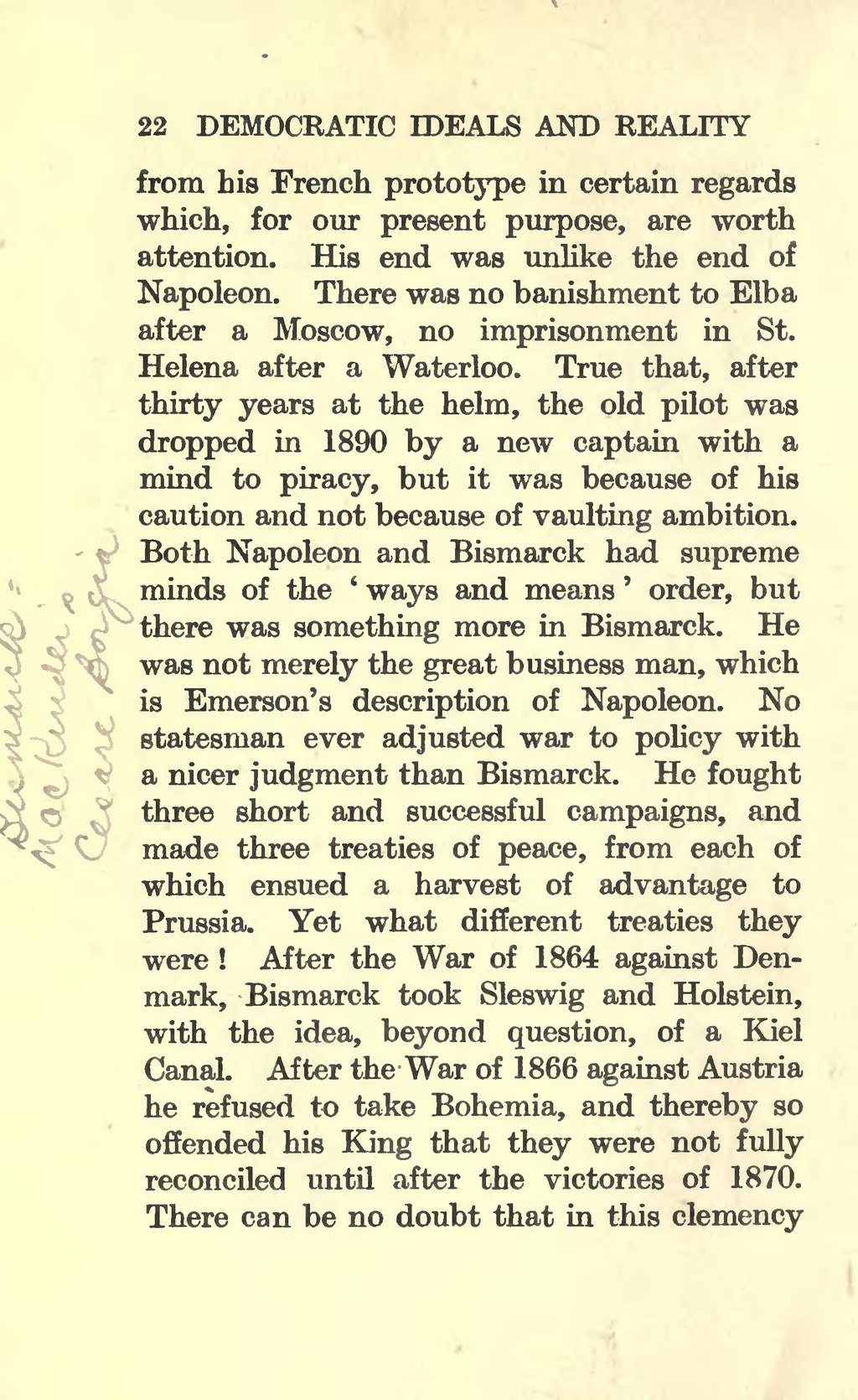from his French prototype in certain regards which, for our present purpose, are worth attention. His end was unlike the end of Napoleon. There was no banishment to Elba after a Moscow, no imprisonment in St. Helena after a Waterloo. True that, after thirty years at the helm, the old pilot was dropped in 1890 by a new captain with a mind to piracy, but it was because of his caution and not because of vaulting ambition. Both Napoleon and Bismarck had supreme minds of the 'ways and means' order, but there was something more in Bismarck. He was not merely the great business man, which is Emerson's description of Napoleon. No statesman ever adjusted war to policy with a nicer judgment than Bismarck. He fought three short and successful campaigns, and made three treaties of peace, from each of which ensued a harvest of advantage to Prussia. Yet what different treaties they were! After the War of 1864 against Denmark, Bismarck took Sleswig and Holstein, with the idea, beyond question, of a Kiel Canal. After the War of 1866 against Austria he refused to take Bohemia, and thereby so offended his King that they were not fully reconciled until after the victories of 1870. There can be no doubt that in this clemency
Page:Democratic Ideals and Reality (1919).djvu/34
This page has been validated.
22
DEMOCRATIC IDEALS AND REALITY
